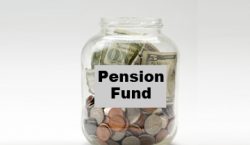

FOR comedian Ayo Edebiri the coronavirus pandemic has been no laughing matter — in more ways than one.
People losing their lives to a deadly virus ― or Black Lives Matter protests in the wake of the shocking death of George Floyd — hardly provided rich picking for jokes.
And then there was the problem with comedy venues closing en masse during lockdown. Back in March she correctly predicted to a Los Angeles audience that her stand-up gig that night was likely to be her last for a while.
Lockdowns meant venues around the world where stand-ups would perform had to shut down — thousands of performances were cancelled.
For London-based comedian Kate Smurthwaite, this meant a £16 000 loss in bookings — a mixture of stand-up performances, festivals, teaching and workshops —throughout the year.
Also, many travel and accommodation fees were paid in advance, and it hasn’t been possible to receive refunds for all of them.
“In the first part of lockdown I was just in financial freefall and I ended up going online and putting myself forward as a maths tutor because it was the only thing I could think of to do,” Smurthwaite says.
As well as on-stage comedians, support services such as venue staff, bartenders, sound technicians, festival organisers, and others, are affected.
“Those folks are responsible for comedy happening and they were hit hard by this ― it’s horrible,” says Caleb Hearon, a Los Angeles-based comedian and writer.
Some comedians have received financial support from their governments, but this has only plugged a small gap ― more worrying is the fact that post-pandemic, they may not have performance venues.
About half of comedy clubs in the UK say they will definitely face permanent closure without further funding or support, according to a survey.
The UK government is providing £1,5bn emergency arts funding, but comedy was not mentioned in the announcement. British comedian Mark Watson says this follows a long history of comedy being overlooked, despite playing a big part in UK culture.
“It does deserve to be regarded in the same way as some of these other senior art forms,” he says. – BBC
Sorry. No data so far.

